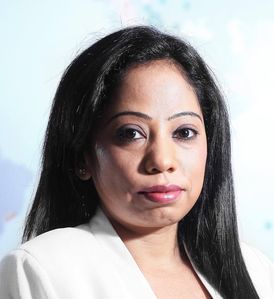Q/ What are the challenges for thalassaemia patients?
Persons with thalassaemia face multiple challenges that may vary and intensify with age. Patients of thalassaemia major require fortnightly blood transfusions for survival. Finding voluntary blood donors can pose a huge challenge. Pandemics like the current one can make matters worse. The chronic nature of the condition and repeated transfusions make thalassaemics susceptible to other conditions related to liver, heart and endocrine system. Thalassaemics usually go through deep psychological, financial and social issues.
Q/ What are the key steps to make blood transfusion a safe experience?
Quality of blood should be a matter of concern for anybody going for a transfusion. Unsafe blood may lead to mortality because of transfusion transmitted infections like Hepatitis B, Hepatitis C and HIV. Under its Safe Blood Campaign, Thalassemia Patients Advocacy Group commissioned a study on the Regulatory Framework for Blood Transfusion Services by Vidhi Centre of Legal Study. Finalised in 2020, the study highlighted the fragmented nature of the regulatory framework for blood transfusion services in India. Currently, the Drugs and Cosmetics Act regulates the functioning of blood banks since blood is defined as a ‘drug’ under the current dispensation. While the National Health Mission (NHM) is responsible for thalassaemia, guidelines for blood transfusion services are issued by the National Blood Transfusion Council and the same are voluntary in nature!
There is too much fragmentation and confusion in terms of roles, responsibilities and powers. There is, therefore, an urgent need to formulate a separate regulatory framework for blood transfusion services that not only appoints a single authority for regulation but also gives statutory powers to the same. Lastly, implementation is key and social media campaigns should be taken up to spread awareness about the merits of voluntary blood donation and screening.
Q/ How can patients contribute to health care policy-making?
A patient’s input is crucial at every level of care. For instance, many thalassaemia patients are successful doctors, lawyers and genetic engineers. They have developed an understanding, competence and capability to participate in decision-making, then why should they not be included in policy-making? Not all decision makers will be experts in subjects related to thalassaemia, so it is critical to include patients as they are the ones who have suffered and learnt to live with the disease.
Q/ What is your expectation from the government on policy implementation?
Implementation in states! India has come a long way in terms of policies catering to thalassaemia. Blood Cells under NHM are a solid example of the government's passion for managing thalassaemia. Further, thalassaemia has been recognised as a disability under the Rights of Persons with Disabilities Act. The government should push for standardised care for conditions like thalassaemia.
Q/ What can the country do to prevent thalassaemia?
Nothing less than a nationwide campaign would do. Prevention of disabilities is a sustainable development goal. We urge the authorities to consider a campaign on the lines of polio and add the element of awareness to it. Splurging money on managing something that is preventable is a dent on the country's economy. Free up the money and free the country of the unwanted tag of ‘thalassaemia capital of the world’.

